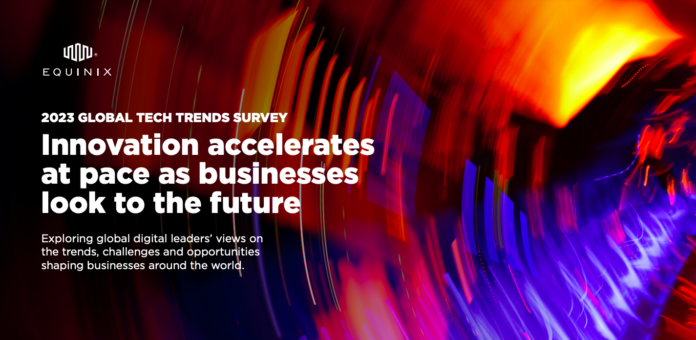More than two in every five (44%) IT leaders surveyed in Asia-Pacific region believe their existing IT infrastructure is not fully prepared for the demands of artificial intelligence (AI) technology, despite its widespread adoption across industries, according to Equinix.
This is from an independent study, commissioned by Equinix and done between March 20 and April 7.
Dynata surveyed more than 2,900 IT decision-makers across the Americas (Brazil, Canada, Colombia, Chile, Mexico, United States), Asia-Pacific (Australia, Hong Kong, India, Japan, Singapore, South Korea), and EMEA (Bulgaria, Finland, France, Germany, Ireland, Italy, Netherlands, Nigeria, Poland, Portugal, South Africa, Spain, Sweden, Switzerland, Turkey, UAE, UK).
“As AI capabilities and use cases continue to build in momentum, organisations that are not equipped to harness the power of AI will see themselves losing out on a substantial competitive advantage,” said Jeremy Deutsch, Equinix president in APAC.
The survey confirmed AI uptake is on the rise across all industry sectors, with 83% of the IT decision-makers polled in Asia-Pacific seeking to benefit from the advantages of AI and already using or planning to use it across multiple key functions.
Organisations are most likely to be using AI, or planning to do so, in IT operations (83%), followed by cybersecurity (81%), and customer experience (78%).
“Successful development of accurate AI models depends upon secure and high-speed access to both internal and external data sources that can be spread across multiple clouds and data brokers,” said Deutsch.
For example, as enterprises embark on creating their own private generative AI solutions, they may want to process their confidential data at a private and secure location with high-speed access to external data sources and AI models.
On implementing complex AI strategies, harrison.ai CEO and co-founder Aengus Tran said secure hosting of our compute and data storage platforms is their highest technical priority as we build AI solutions for clinicians across the world.
“We rely on an extremely fast and direct connection to enable hybrid cloud models as required to move remarkably large data sets on which we train and develop our AI solutions,” said Tran.
“This digital infrastructure enables us to tackle bigger healthcare problems—from medical imaging solutions, to new AI healthcare solutions requiring more data and processing—helping to improve the standard of global healthcare and achieve our vision to impact one million lives per day,” added Tran.
APAC remains a strong and dynamic region projected to contribute around 70% of global growth in 2023.
Findings from the Equinix 2023 Global Tech Trends Survey echoes that with 80% of APAC businesses planning to expand geographically in the next 12 months.
















